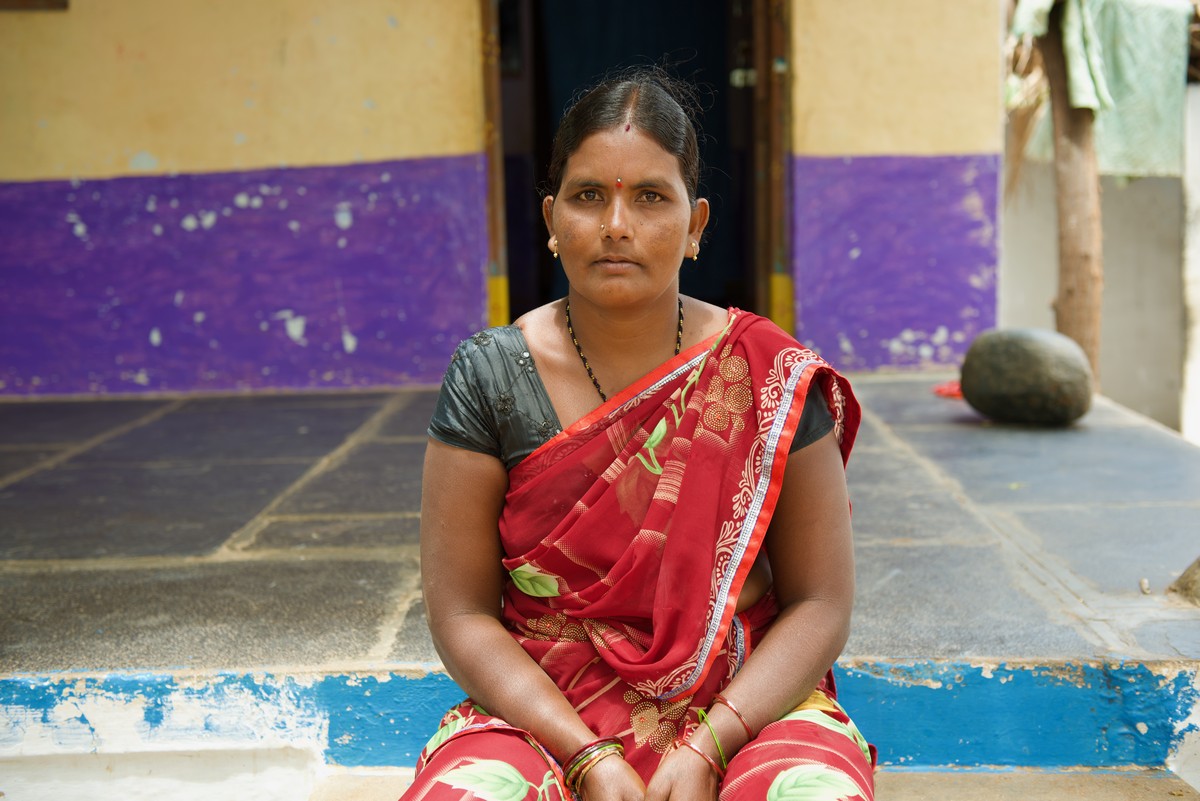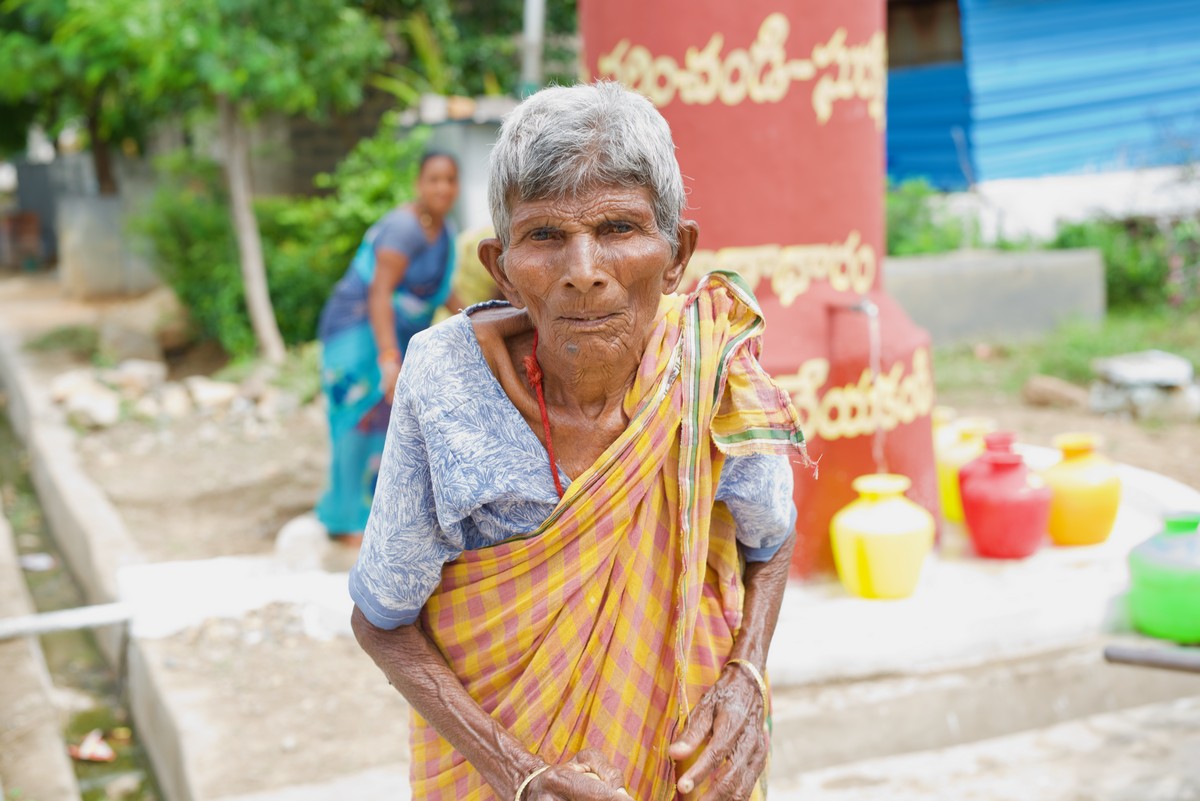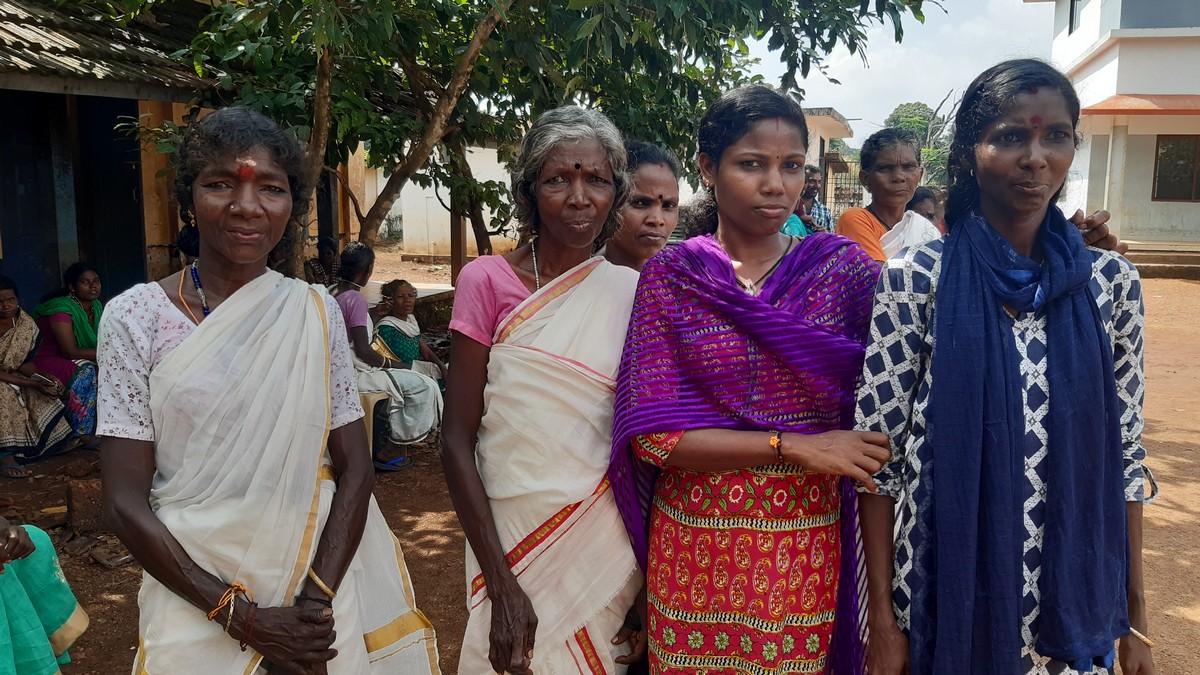Ranipet, Tamil Nadu, India
In collaboration with

May 2023 – December 2024
Construction of domestic bathrooms for 50 housholds in the Irular indigenous community to create a hygienic and healthy environment. Dissemination of the CLTS method (Total Sanitation Led by the Community) with campaigns and information programs and training on water, sanitation and hygiene.
Objectives
- Build improved facilities and establish sanitation practices among the 50 Irular households.
- Increase access to improved sanitation for the poorest, children, and the most vulnerable.
- Reduce the incidence of health problems related to open defecation in homes.
- Increase community engagement and behavior change communication about the importance of sanitation and hygiene in communities, including anganwadis, government-sponsored child care, and early development centers in India.
Beneficiaries
200 direct
75 children under 15 years of age and 125 women.
1000 indirect
400 children under 15 years of age and 300 women.
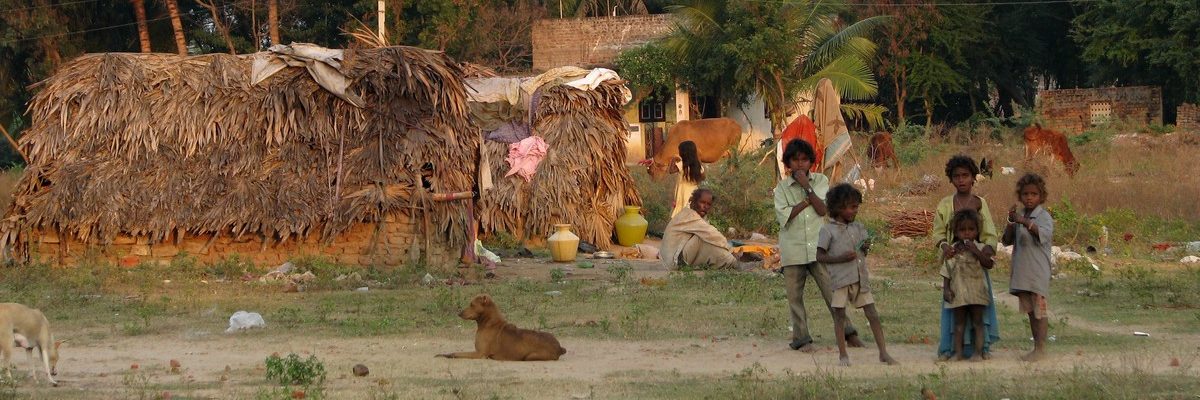
On the ground
The abandonment of the Irulars
The Irulars are an indigenous community mainly residing in southern India, in the states of Tamil Nadu, Kerala, and Karnataka, and they live in extreme poverty. They inhabit small huts and lack access to sanitation facilities, leading them to practice open defecation, a practice associated with the transmission of diarrheal diseases such as cholera and dysentery, typhoid fever, intestinal worm infections, and poliomyelitis. Open defecation also hinders children’s growth, contributes to the spread of antimicrobial resistance, and affects the community’s overall well-being.
In Ranipet, about 9,500 Irulars live in small isolated groups. Most work as woodcutters and daily laborers in the village to make ends meet. Over the past years, the community has struggled to thrive and meet basic needs and facilities such as housing, electricity, and public services. A community-based cross-sectional study to assess the nutritional status of children under five years old and their mothers revealed a prevalence of underweight, stunting, and severe wasting (weight-for-height) well below the average. Women were the most affected. Overall, the nutritional status was deficient. Advanced age, gender, maternal illiteracy, lack of nutrition knowledge, and low utilization of healthcare services were the main underlying determinants. The burden of malnutrition is a severe concern for preschool-aged children in the Irular tribes in Tamil Nadu.
“The local government is making efforts to provide all basic services such as electricity to the Irular community. Additionally, the Tamil Nadu Drinking Water Drainage Board, responsible for the supply of potable water in the state, is striving to meet their needs as women, in particular, have to travel long distances to fetch water.”
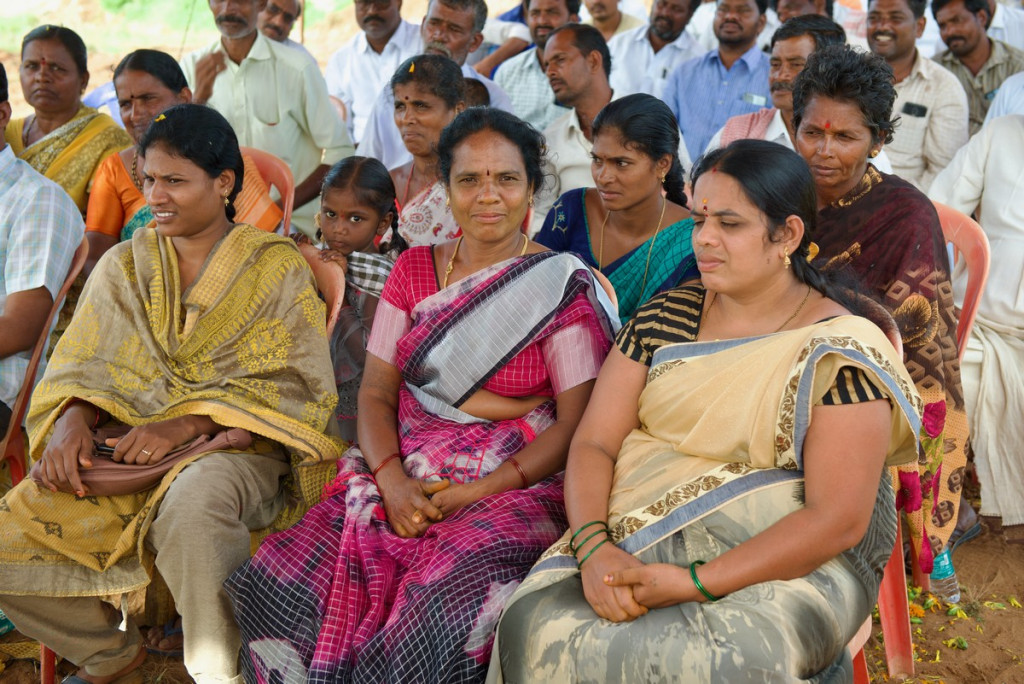
In detail
In summary, the methodology we are going to follow is based on organizing the participation of local partners in the formulation, execution, and evaluation of the project through:
- Introductory and planning meetings.
Planning workshop with a detailed plan that includes financial, human, and material resource requirements and implementation timelines.
Strategy meeting to develop a detailed implementation and monitoring plan. - Community capacity-building, including identifying, training, and deploying SANTOLIC motivators.
- Behavior change through the development of communication tools and materials.
Implementation Process
- Community mobilization to demand sanitation services, including the adoption of hygiene practices: use of toilets, handwashing with soap at critical times before and after eating, after using the toilet, before handling food, after handling feces or solid waste, protection of water sources, and safe water use, and proper disposal of children’s excreta. The developed IEC (Information, Education, and Communication) materials will be used during campaigns and rallies.
- Achieve behavior change in the community to improve Water, Sanitation, and Hygiene (WASH) practices through community engagement.
- Accelerate the coverage and use of sanitary latrines in the proposed Irular communities by strengthening local capacities and creating demand to achieve more open-defecation-free communities.
- Involve community ownership, ensuring participation through existing or newly established Village Health, Sanitation, and Nutrition Committees. Their primary responsibility is to address health and sanitation issues.
Implementation of CLTS
CLTS (Community Led Total Sanitation) is a methodology to mobilize communities to conduct their own assessment and analysis of open defecation. It stimulates a collective sense of disgust and shame among its members when confronted with the stark reality of widespread open defecation and its negative impacts. It is based on the assumption that no human being can remain indifferent once they know they are ingesting other people’s feces. Communities typically react and develop action plans to become open-defecation-free through their efforts. SANTOLIC focuses on behavior change, triggering the community’s desire for change and fostering innovation, mutual support, and appropriate local solutions. All of this leads to greater ownership of the answers and their sustainability. The SANTOLIC approach aims to generate demand and continue actions at the local level without direct financial assistance. It empowers the local community and mobilizes them to take action.
Sustainability perspectives
The sustainability of the installed toilets will be ensured by forming a WASH committee within the community and training them on operation, maintenance, and proper usage. The SANTOLIC program will create strong awareness and impart knowledge to aid sustainability.


